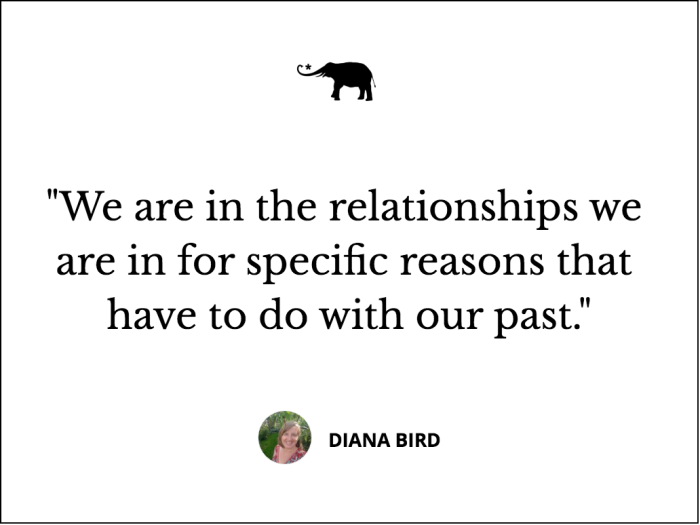“My husband ruins everything.
If I am honest, my husband was the reason why our marriage was in trouble. He’s the asshole. Not me.”
Or so I thought.
How we are with our partners (and kids, but that’s another story) reveals so much about how we live and cope with life.
It shows us how we feel about ourselves, how we deal with our emotions, how we deal with other people’s emotions, and how we communicate, or not communicate, our essential needs in life.
On closer inspection, it shows us emotional patterns that have been repeating over and over, but perhaps we weren’t aware of.
Perhaps patterns of unexpressed rage.
Or pits of shame.
Or ravines of fear.
All of our inner emotional conflicts and pressures come out in that intimate dance of partnership.
For years, my husband was the one mostly doing all the wrong things in my eyes. I had a few things I could work on, but he was the one who was “inconsiderate,” couldn’t deal with his emotions (like anger), was emotionally unstable, annoying, irresponsible, and so on.
Our lives would have been so much better if he/she just did this or that.
What I learned on my journey was that how I was with him, and how he was with me, was actually a pattern of feeling with people, intimacy, emotions, and life that had been established years and years before we both arrived on the scene of each other’s lives.
How I dealt with emotional intimacy was actually established way back in my childhood. And him too.
That was where I learnt how to deal (or not deal) with my emotions.
That was where I learnt how to communicate (or not communicate because I didn’t even know what they were) my needs. And so importantly, how to deal with someone else and their emotions.
And this is such a significant piece: how we learn to deal with the emotions of other people.
When I traced it back, I learnt how to deal with the emotions of people I loved by trying to fix them. Be helpful. Or when totally overwhelmed, I would freeze and shut down (and then later get really angry and resentful).
How my husband learnt to deal with the emotions of people he loved was to run away. Too scary. Run away and ignore them. Or, if feeling cornered, like a bear, roar his way through the terror he felt of other people’s feelings.
When our relationships are struggling, especially when we add the weight of those intense adult responsibilities, like money management, kids, moving houses, changing jobs, death of parents or loved ones, it is so easy to look at the other.
“They are messing this up for us.”
“Our lives would be so perfect if they just got their sh*t together!”
“If only they would…”
“They are doing it all wrong!”
And I am not saying this to condone anyone’s crappy behaviour. People are always responsible for their actions.
When things go wrong, and they’ve been going wrong for some time—or they just can’t bear the weight of any added responsibility of emotional challenges like grief—then we must look at ourselves.
What do we do in our intimate lives? How do we feel about intimacy? How do we cope with our emotions? How do we cope with other people’s emotions? Can we cope with stress? How do we deal with emotional challenges?
Sometimes, in arguments, my husband would say, “That’s it, Di! I am done! I don’t want to be together anymore!”
And I’ll be honest with you, I would be incredulous.
I would be thinking to myself, “But I am the good one! I am the nice one! You’re the problem, why would you want to leave me? I’m putting up with you, not the other way round.”
So much of what is going wrong in our relationships comes down to how we have learnt to deal with emotions and the survival reactions we leap into when there is too much emotional pressure.
There was a moment in my 20s when I seriously thought about leaving my husband. And for some incredibly inspired reason, I had this clear thought that actually if I did leave him, I would end up in a relationship with the same emotional pattern.
Somehow, I saw that I needed to fix the challenges I had with my emotional intimacy; I needed to heal the wounds of how I was in the world. How I looked after and cared for myself. How I learnt about what my needs were and how I communicated them.
It would take me many, many more years to work out how. But I see the clarity of that young woman, knowing that changing up for the same model was not the answer.
We are in the relationships we are in for specific reasons that have to do with our past.
How we learnt as young children to deal with our emotions.
How we learnt as young children to deal with our needs.
How we learnt as young children to deal with other people and their feelings.
We don’t condone or accept destructive or abusive behaviour, not at all. We always prioritise our safety. What I am talking about is not abusive behaviour—which is never okay.
But if we want to improve the relationships we are in, or find a more healthy incarnation of an intimate relationship, we should work on healing ourselves first.
Healing those patterns of how we express emotional intimacy that can lead to unhappy or strained relationships.
I can say this with confidence because I have been through this myself (and helped other people).
From having years (and years) of unexpressed rage and resentment. From being hypervigilant and never trusting myself or anyone around me to being able to relax and switch off.
From only knowing how to respond to my kids and my family’s emotions and needs and having no idea how to connect to my own.
For years, I felt trapped, unhappy, and unseen.
But from that, I learnt, gradually, gently, and lovingly, how to work to find my needs.
Learning to work through the discomfort I have about considering my own feelings and needs before other people’s.
All of this is a work in progress.
All of this is a journey I am still on—healing and expanding, healing and growing, healing and bringing more love and empathy into my life.
When we think it’s the other, the first step then, is to start healing ourselves.
With love, always.
Diana
~


 Share on bsky
Share on bsky






Read 1 comment and reply